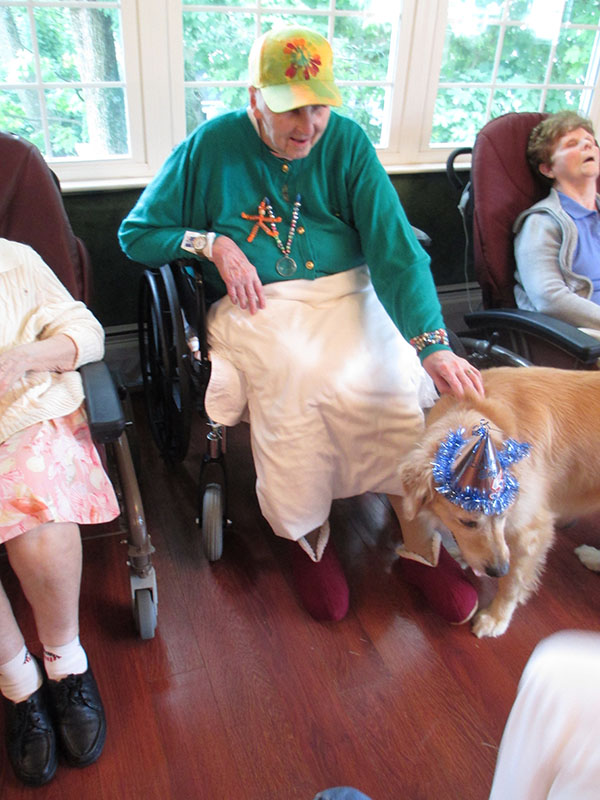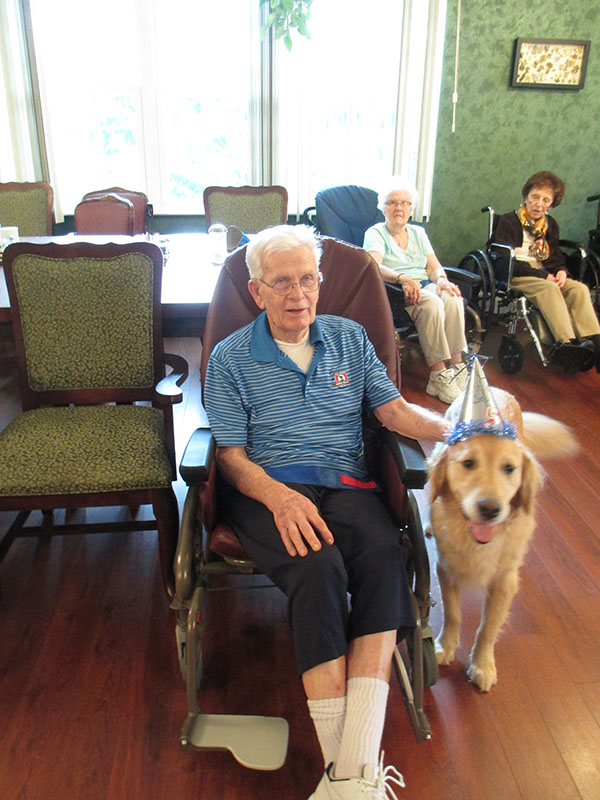Pet Therapy at Dodge Park Rest Home and Day Club in Worcester, MA
Therapy animals have long been used to assist blind and disabled individuals. Now, dogs and pets of all kinds have become increasingly common in the treatment of individuals with dementia related disorders.
“Animals are such agreeable friends – they ask no questions, they pass no criticisms.”
-George Eliot
Therapy animals have long been used to assist blind and disabled individuals. Now, dogs and pets of all kinds have become increasingly common in the treatment of individuals with dementia related disorders.
The kind of obstacles faced by those with dementia include apathy, irritability, restlessness, depression, difficulty engaging in social activities, and risk of loneliness and isolation. Due to the anxiety that social situations can cause in dementia patients, they often avoid social situations altogether, including interacting with family and loved ones.
People dealing with dementia can lose motivation to maintain physical activity and sometimes neglect necessary daily activities such as eating or basic personal hygiene. If you or someone you know is experiencing some of these difficulties in caring for a loved one with dementia, it may be worth considering investing in a furry companion.
Pet Therapy: Why animals?
Animals, by their very “nature” are non-judgmental, making them the perfect therapists and companions for individuals with dementia. They can provide a tremendous source of social support and unconditional love.
Research shows that people with dementia recognize a pet in the environment as friendly and non-threatening. When they have a pet with them, studies show they display more interactive behaviors, although these behaviors are often directed toward the pet rather than their human companions.
Dogs have proven to reduce agitation and increase pleasure just by their presence. They also have the ability to increase the amount of physical activity a patient participates in. Depending on the mobility of the patient, they may be able to engage in playful activities with the dog, take it on a short walk, or simply take the time and effort to groom the animal.
It has even been shown that dementia patients eat more following the visit of a therapy animal. Spending time with an animal has even been correlated to lower blood pressure and increased odds of survival after a heart attack. Many individuals with Alzheimer’s, who respond to little or nothing else in their environment, will respond to the non-threatening presence of a gentle therapy animal. An animal also provides a natural and easy conversation topic for dementia patients, who often feel a great deal of strain from being put into social situations.
Read more about Pet Therapy at Alzheimer’s Project












